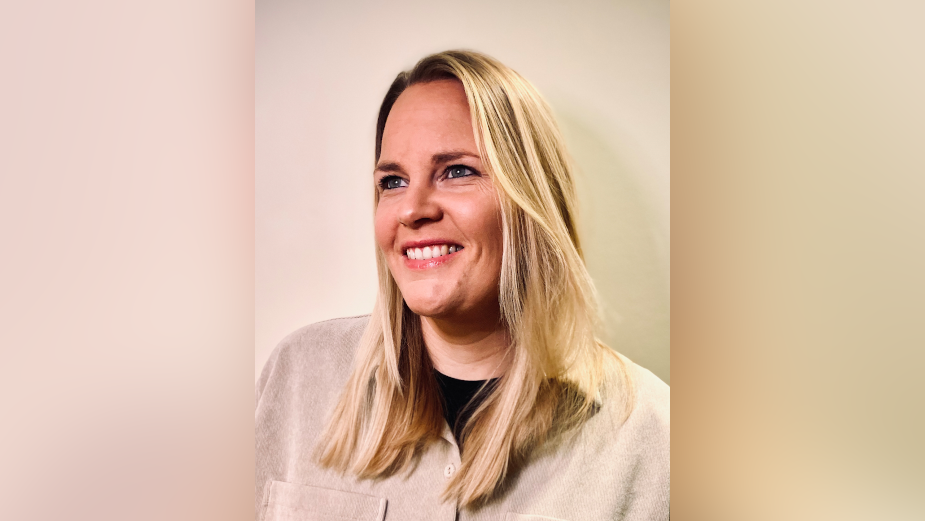
Planning for the Best: Amanda Jones and the Power of the ‘Would My Mum Get This?’ Test

Amanda Jones arrived at McCann Worldgroup having previously worked in-house for a Premier League football club but has since gone on to work across a plethora of brands and industries from Telco to toys, pharmacy to finance, and CPG to QSR.
Schooled at McCann UK, ‘AJ’ has a track record of delivering creatively awarded and commercially successful campaigns. As CSO for McCann Bucharest AJ was responsible for the strategic development of global mega-brands such as KFC and Coca-Cola, and finding a place in culture for local players such as ROM, throughout the CEE region. AJ loves finding the intersections of brands and culture, and is relentless in search of fascinating truths in the seemingly mundane. As CSO for McCann Canada AJ is focused on understanding how brands can navigate the challenges of the compounding crisis we face, but also be foundational pillars of renewal in a post-covid Canada.
With a passion for creating impactful, meaningful work AJ recently led a collaborative initiative between McCann Worldgroup and Raleigh International to develop a powerful behaviour change campaign promoting more sustainable living in one of the world's most threatened environments.
Get to know Amanda and her approach to strategy below.
LBB> What do you think is the difference between a strategist and a planner? Is there one?
Amanda> Honestly, I’m not sure there is one, like everything there are probably trends that come and go. It’s perhaps not entirely surprising that a bunch of people often responsible for repositioning brands occasionally get carried away with their own repositioning. If I was pushed, I would say a planner works on what a brand is doing, and a strategist works on why they exist and why they’re communicating.
LBB> And which description do you think suits the way you work best?
Amanda> I tend to go with strategist because it feels like it represents a bit more freedom than being responsible for a particular plan, it is more about a lane of strategic thinking.
LBB> We’re used to hearing about the best creative advertising campaigns, but what’s your favourite historic campaign from a strategic perspective? One that you feel demonstrates great strategy?
Amanda> The obvious one that jumps out is the Avis ‘No2 / We Try Harder’ campaign – so many of the things we talk about as strategists are laid out in that campaign. From authenticity to a big strategic leap, from leaning into the tension to a clear understanding of audience, and of course all along delivering the underlying proof.
LBB> When you’re turning a business brief into something that can inform an inspiring creative campaign, do you find the most useful resource to draw on?
Amanda> I think we often overlook the value of people and their perspectives. I’m incredibly fortunate to be a part of an agency that has some amazing tools that can provide us with all sorts of fascinating inputs, but it’s the perspectives of different people that I find most useful. Those perspectives could be data-informed, or experience based, or both, but the power of conversation in building (and occasionally destroying) strategic thinking is unparalleled. Nothing has the power to highlight your blind-spot like a conversation.
LBB> What part of your job/the strategic process do you enjoy the most?
Amanda> At the risk of sounding very boring, I like the challenge of finding something fascinating in the seemingly mundane. Of course we all get swept away by the big tensions, the big cultural issues and the big picture, but finding a new perspective on a moment or behaviour that had always been previously overlooked is an exciting thing. Hearing someone say ‘I’ve never thought of it like that before’ is probably the thing that charges our strategic batteries the most.
LBB> What strategic maxims, frameworks or principles do you find yourself going back to over and over again? Why are they so useful?
Amanda> At McCann we have a Truth Hunting framework which gives me the confidence to know we’ve explored everything and we’re building from a solid base. Like a lot of people, I hate blank pieces of paper so I’m drawn to A-Zs or 2x2s, nothing complex or innovative but something that gives you a starting point. Probably the thing I go back to most is a very simple ‘would my mum get this?’ test – which keeps me honest in terms of developing a strategy that isn’t unnecessarily complicated, that is actionable and that provokes thought in a constructive way. I have a lot of time for the notion that strategists should have ‘strong opinions, lightly held’, we can’t afford for our work to be vanilla or uninspiring, but we also can’t afford for it to be cantankerous. Strategic development is iterative, and we need to be open to evolving our thinking as we go, but from a strong base.
LBB> What sort of creatives do you like to work with? As a strategist, what do you want them to do with the information you give them?
Amanda> I am drawn to creatives who like to discuss things, including but not limited to briefs and ideas. I love working with Josh Stein, our CCO, because he wants to have honest conversations throughout the process and because we have a shared ambition, we allow ourselves to challenge each other and our teams throughout. Nothing makes me more nervous than creatives seemingly ‘accepting’ a brief – a briefing needs to trigger a reaction, to spark discussion and to create an energy that can then be channelled.
LBB> There’s a negative stereotype about strategy being used to validate creative ideas, rather than as a resource to inform them and make sure they’re effective. How do you make sure McCann Toronto gets this the right way round?
Amanda> Of course post-rationalising creative ideas isn’t why any strategist became a strategist, and to use our strategic resources in that way is a waste. Equally we can’t pretend that any creative process is a linear one, and we have to bust the myth that strategists write briefs that are handed to creatives who have ideas; that’s an on-paper way of thinking about it that doesn’t reflect reality. At McCann Canada our strategists are very much involved in the development of not only briefs, but also the shaping of ideas. Having creatives input into briefs and strategists inputting into ideas makes for a more connected story that eliminates the need for retrofitting. Creative excellence by design, not by accident, is key.
LBB> What have you found to be the most important consideration in recruiting and nurturing strategic talent? And how has Covid changed the way you think about this?
Amanda> In terms of nurturing talent it strikes me that not being in offices is stripping us of the ‘observational learning’ opportunities, when I look back to my early days I was so fortunate to learn the good, the bad and the ugly of strategy from watching a broad mix of colleagues in action; and that is hard to replicate in our online bubbles. As an industry I think we’re learning to consider people more holistically than their role or job title, which can only be a good thing.
LBB> In recent years it seems like effectiveness awards have grown in prestige and agencies have paid more attention to them. How do you think this has impacted on how strategists work and the way they are perceived?
Amanda> A heightened awareness of, and willingness to engage in understanding the effectiveness of our work is no bad thing. At a time when many economies, industries and indeed clients’ budgets are taking a hit it is important for agencies to understand the value of their work and their contribution, regardless of awards. Having effectiveness baked into our thinking, rather than an award-season after-thought, is critical. At McCann we’re interested in doing work that works, it’s really as simple as that. The complicated part comes in how we define that on each project, how we measure it etc. I also don’t think effectiveness awards should be the sole responsibility of strategists, or that they should be shorthand for strategic awards. In the same way that creative awards are not simply a reflection of ‘the creatives’.
LBB> Do you have any frustrations with planning/strategy as a discipline?
Amanda> I’m sure we all have niggles, but we’re all probably guilty of contributing to other people’s frustrations too. I worry sometimes that we play too much to the overly-academic ‘smartest person in the room’ trope, I would hate to think that there are a load of interesting, curious, challenging people out there that are put off being strategists by the fear of having to be the smartest person in the room.
LBB> What advice would you give to anyone considering a career as a strategist/planner?
Amanda> Be interested and be interesting. Being interesting is [often] more important than being right.
Trust your instincts, but also test your instincts. Don’t waste your energy trying to override your intuitions, but don’t get so swept away by them you can’t see anything else.
Keep it simple – anyone can make something simple seem complicated, but the best strategists can make the complicated seem simple.













